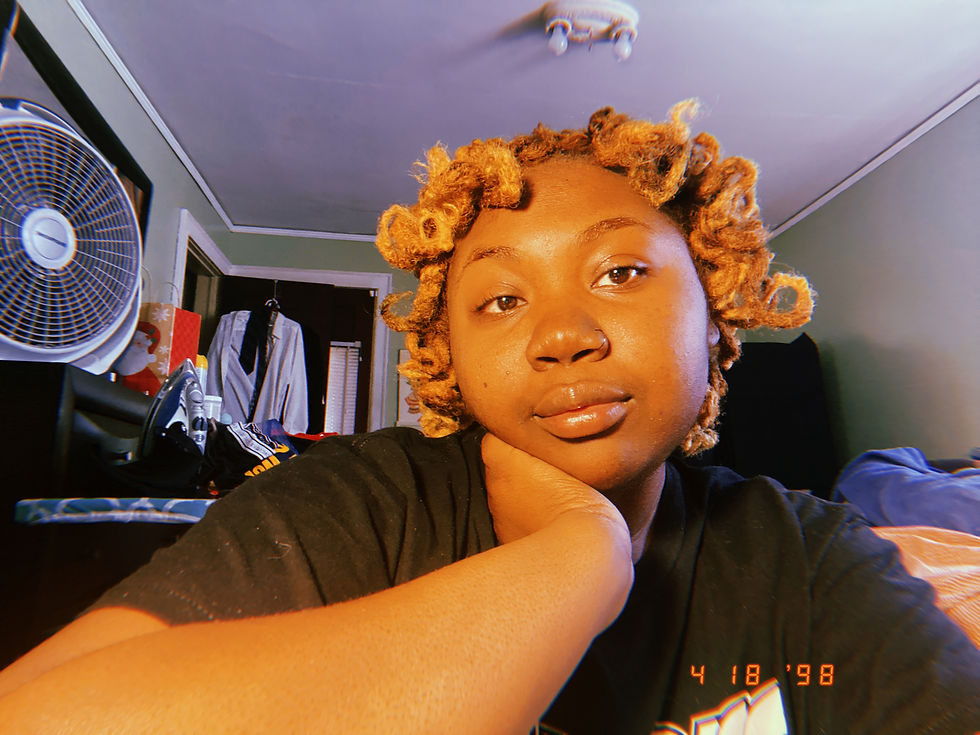The Power of Black Hair.
- Paige Hawkins
- Apr 23, 2020
- 3 min read

In my innocence, she saw my beauty....
When I was born, my mom saw me in my nakedness and innocence, she told me that she fell in love all over again. As the doctor laid me in her wholesome arms, I stopped crying and we bonded. I wondered though if my mom was scared of raising another Black daughter when so many factors would be against every aspect of my being. Now, when I analyze my childhood, my mom did the best she could to make sure that we made something of ourselves. One of the decisions she made was enrolling us in private education. I struggled with reading, speech, and socializing which made me an easy target for bullies. This pushed my mom to enroll me in a more academically challenged private school which happened to be predominately white. I look back and think how sad it was for my mom to invest her resources into an institution run for and by individuals who weren’t articulated in the knowledge and background of our culture. I went from all Black to white which would dictate most of my life.
My first day at this institution left an everlasting mark on my thought process. I was terrified because I had never been the only Black girl in the room. Once my mom kissed me goodbye, a little girl came up to me and said “Was that your real mommy? You are so much darker than her”. I was stunned, and my lip began quivering as I tried being a big girl. I then said quietly, “She’s my mommy”, but I had never been so unsure in my six years of life. This moment physically told me my skin color would factor my life. My grandfather once told me his realization of his Blackness happened at the same age as mine, when his parents sternly told him he couldn’t play in a park meant for only white children. That girl also introduced me to colorism, because I never questioned family not being related to me because they were a couple of shades lighter than.
In college, a professor brought up the idea of discussing what it means to be a Black woman in America. That lecture pushed me back to that moment in first grade, which I tried so hard to suppress. I matriculated through predominantly white institutions, and though my IQ increased, it damaged my nature. The thickness in my hair, the fullness of my lips, the wideness of my nose, and the melanin in my skin were criticized by peers and faculty. Even the dress code was against me. When kids could flaunt their Polish headbands, I was asked to take my head wraps off. I asked why, as my confidence thinned. I was told it was not appropriate. No one would discuss why I couldn’t display my culture, they’d say it’s in the rules, but I’d ask where. Most adults took this as talking back, resulting in sending me to the office. I talked less, but I displayed creativity through my hair until 7th grade when a teacher asked me to make it neater. My Afro, like my voice, withered. I had no voice and in order to partake in civil discourse that’s a pretty important factor. I told myself that in high school kids would mature and the teachers would listen to my voice. I sadly wouldn’t have that until college, but I would be forced to be the listener. In high school, I would ask questions about the lack of authenticity in the history courses. I asked why one day in my history class and a white male who sat next to me claimed that “slavery wasn’t even that bad”. I stated, “you’re disgusting”. Looking back I shouldn’t have responded as I did, but I was younger and repressed my voice and anger for so long that I couldn’t take it anymore. I can only move forward and try to spread the knowledge I’ve gained. As an English major minoring in history, I aspire to one day be on a school’s district board, so that I can be there for the little girls like me, and tell them that nothing's wrong with their features while making sure they are never hushed into silence like I was. I believe that this discussion in schools and homes, not just Black, would increase self-love among Black children and unite us.

Comments